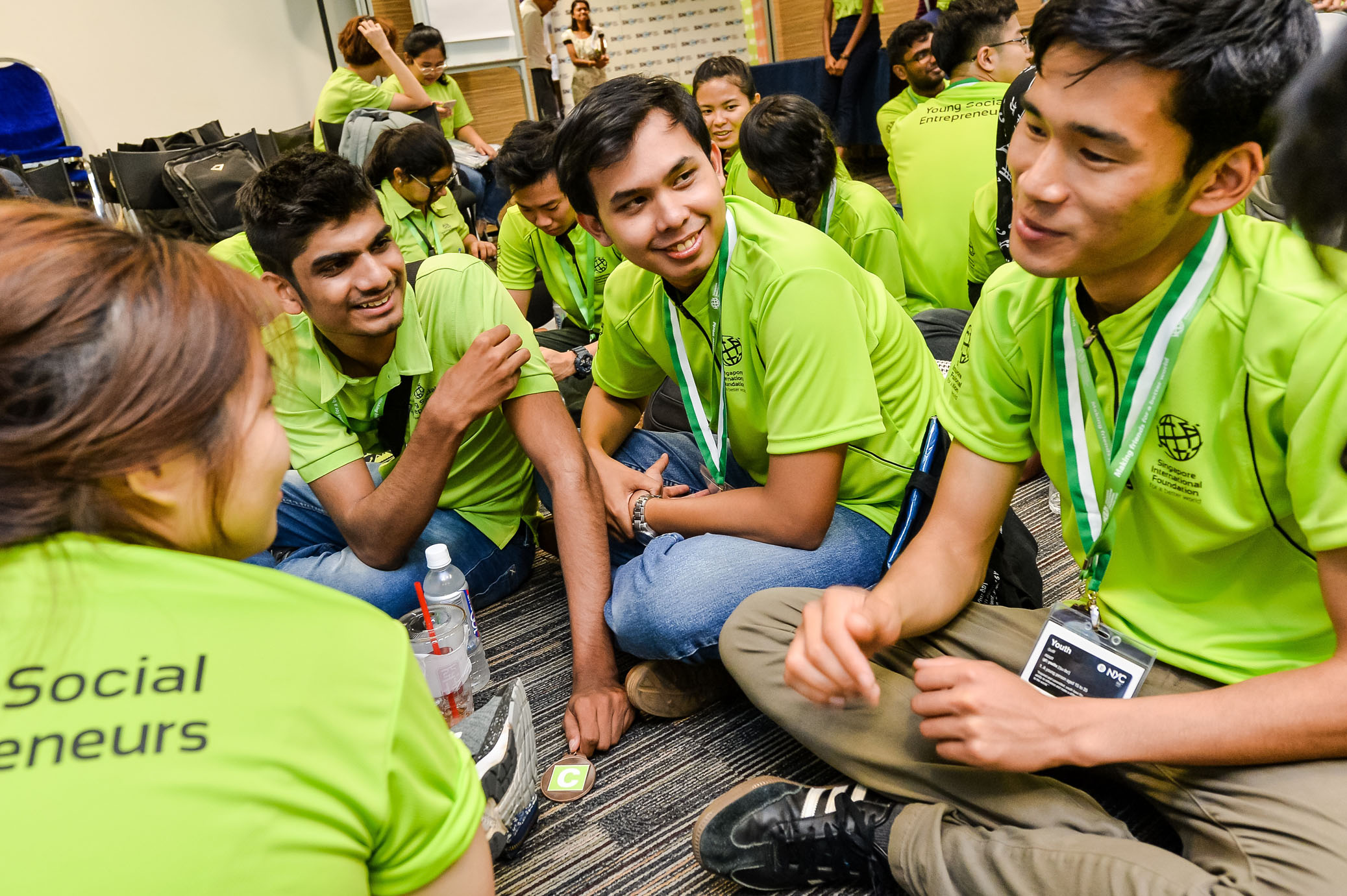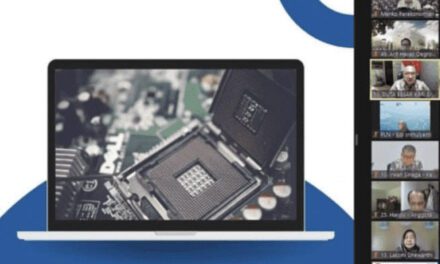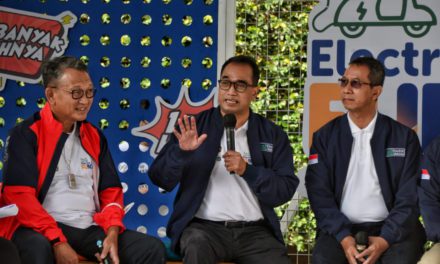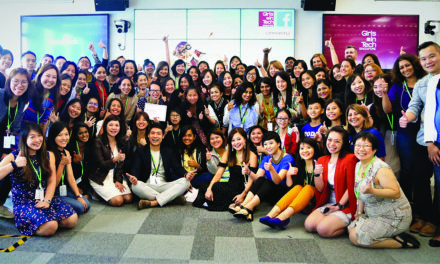
Azmi Roqi (2nd from r), CEO of Elvish and YSE 2018 shortlisted participant, engaging in cross-cultural peer learnings with likeminded youths from India and Bhutan at the YSE 2018 Workshop in Singapore
Five ‘wizards’ from ELVISH working on new way for fishermen in Indonesia to operate their boats
Five Indonesian engineering students might hold the key to boosting fishermen incomes by at least 50% thanks to savvy application of technology
Digital technology is sometimes characterised as “disruptive” but if the work this group of engineering ‘wizards’ from ELVISH if successful, technology can also be “magical.” The spotlight fell on Indonesian student graduates from the Bandung Institute of Technology (BIT): Azmi Roqi (22, from Cimahi), Ali Zaenal Abidin (23, from Jakarta) and Irham Mulkan (22, from Bandung) as well as two engineers: Ahmad Zaki (23, from Jakarta) and Rama Wardana (22, from Bandung) at the Young Social Entrepreneurs shortlist to win a S$20,000 in funding to launch or scale up their social enterprise.
Azmi, the project leader of ELVISH (Electric Vessel for Fishermen) who will be graduating from BIT together with Ali and Irham this July, explained how it started, “At first, we were only interested in electric vehicles since it’s a cool technology that’s very much in the news. We did a design with the electric vehicle industry in mind. While brainstorming, we found this shocking fact (from Indonesian Statistic Centre): Indonesian fishermen form about 25% of the population who live in poverty. We started looking deeper and found out that according to the Indonesian Ministry of Marine and Fisheries, diesel costs make up 41 to 87 percent of the operating expenses of a small fishing boat. Then last year the Indonesian government stopped diesel subsidies and the cost of diesel increased further. Indonesia is a maritime nation and many fishermen were affected.”
“This led us to come up with the idea of ELVISH or Electrical Vessel for Fishermen. Based on our initial design mockup we estimated that an electric powered fishing boat can save up to 90% over the cost of diesel! We believe this sustainable technology can help Indonesian fishermen change their lives! We visited the fishing village of Cidaun, West Java to validate our ideas and concepts to check for ourselves. It is true diesel cost is a heavy burden for fishermen and that they are really excited with our technology.”
They learned last year from a friend that the Singapore International Foundation organised the YSE and enrolled straightway in the hope of realising their idea!
For IndoConnect readers who would like to know more about this story, following is the full transcript of the interview with Azmi that the above article is based on:
Q1: Please provide a brief introduction of the members of ELVISH.
A1: We are a group of 5 engineers. I am Azmi Roqi (22, from Cimahi) as the project leader of Elvish, I’m currently an undergraduate student at Bandung Institute of Technology majoring in Electrical Engineering. I will graduate this July. My colleagues are Ali Zaenal Abidin (23, from Jakarta) and Irham Mulkan (22, from Bandung); they are currently graduate students at Bandung Institute of Technology majoring in Information Security Engineering. They will also graduate this July. My other colleagues are Ahmad Zaki (23, from Jakarta) and Rama Wardana (22, from Bandung). They currently work as engineers in Arthatronic Studio, a startup based in Bandung which blends art and technology as a service. All of us met while studying in the same major, Electrical Engineering as undergraduate student in Bandung Institute of Technology. We used to work on electrical engineering projects together.
Q2: How did this idea for the application of your new technology come about? Also, when and how did you learn about the YSE?
A2: At first, we are only interested in electric vehicles since it’s a cool technology and everyone is talking about it. So we did some design thinking around the electric vehicle industry. While we were brainstorming our ideas, we found this shocking fact about the conditions of our fishermen in Indonesia. The data released from the Indonesian Statistic Centre in 2011 showed about 25% of those who live in poverty are fishermen. Then we tried to dig deeper around the business process of fishing especially looking at those fishermen who only have small boats to catch fish. We found out that according to the Indonesian Ministry of Marine and Fisheries, diesel cost in the business process makes up 41 to 87 percent of the total cost of fishing. There was also the fact that the Indonesian government had stopped diesel subsidies for fishermen in 2017 and the cost of diesel is increasing every year. Since Indonesia is a maritime nation, we have so many fishermen living with these conditions. This information led us to come up with the idea of Elvish – Electrical Vessel for Fishermen. We did a mockup design for this idea and it is estimated to be able to save up to 90% on diesel cost. We believe this is a sustainable technology that could help Indonesian fishermen change the way they make their living. So we tried to validate our idea to a fishermen village in Cidaun, West Java. We checked and confirmed the information is true, that diesel costs is a burden for fishermen and they are really excited with our technology. We learned about YSE last year from our friend who’s also participating in YSE 2018. After we heard about YSE, we found out more online about YSE and we were sure that YSE could help us on realize our idea so we registered right away.

Q3. Can you describe the project you entered for YSE? The technology used and major components of the system?
A3: Our key idea is actually replacing the current mechanical motor system on existing fishing boats to an electrical one which will be powered by solar energy. The main components consist of an electrical motor, photovoltaics battery, navigation system and control panel as well as an electric light. I attached a rough design image so it is easier to understand and I also attached the current boats that fishermen use. The length is about 10 m and the width is about 2 m. In our control panel design, we have a navigation system which uses GPS technology and other sensors for safety to help the fishermen navigate and check on the current condition of the boat especially the battery condition so they know how far they can travel. We don’t use internet technology currently because not all ocean regions in Indonesia has internet coverage. We use a small LCD screen as a control panel to display any necessary information for fishermen and to control the system.
Q4: Is it correct to say the design will have two impacts: One, on the environment and the other the economic livelihood of the people who use this technology? Has this invention the possibility or capability to be scaled up greatly to also make a very large impact on society – changing or improving the lives and the environment?
A4: Correct! The main problem we are trying to solve is actually the economic livelihood of Indonesian fishermen. We estimate they could save money more than S$24,000 in five years compared to using conventional technology. It is a great amount for Indonesian fishermen – more than twice of what they usually earn and the technology is going to be cheaper each year. This is opposite of the diesel price! Besides that, we also studied about the environmental impact that our technology will have. Based on our calculations, one diesel powered fishing boat produces about 18.8 tons of carbon emission annually. So we could say that by implementing our technology, we could save 18.8 ton carbon emissions per year per boat! Yes, our technology is able to scale up greatly to make a very large impact on society. We could expand its use in every region in Indonesia or even in Asia. We can also scale up the technology run a bigger boat or a tourist or logistic boat. So we are very excited to work on this design.
Q5. Currently what are the major challenges (drawbacks or disadvantages) you anticipate and are working on to overcome to make it successful?
A5: Currently our major challenge is to raise funds for prototyping. We are at the prototyping stage right now. We really need funds to test our design and make a robust product that will be ready to market in a safe and reliable way. We are open to any discussions, of any grants or investment opportunity from any parties such as the government, NGOs or VCs, who have the same vision as us. This is also the reason why we joined YSE 2018 which is organised by the Singapore International Foundation.
Q6. Can you describe what kind of help have you been receiving from the YSE (so far) and how helpful it has been (especially since your visit here in April) in the developing the project?
A6: Actually YSE has given us more than we expected. Our main reason to participate was to get funded, since the YSE Workshop in March, my team members and I have forged new friendships with our YSE peers from many nationalities. These friendships allow us to share our ideas and be inspired by one another as we pursue this journey to social entrepreneurship. We are currently embarking on an eight-month incubation programme where the YSEs are being equipped with workshops, business clinics, mentorship sessions, and an overseas study visit to Singapore. We have gained so many insights from the workshops especially about the world of Social Entrepreneurship. We also engage in cross-border learning from international contacts so we can learn from other countries how things are similar and also different. Finally, what we have found most helpful is the business strategy insight from our mentor, Mr. Allan who has more than 40 years business experience in the industrial automation industry. He helped and guided us on business strategy especially the financial part since we are just a bunch of engineers. We are also looking forward to the next mentorship program for YSE where shortlisted teams like ours will be assigned a mentor from either internationally renowned business consulting firm McKinsey & Co or investment company Temasek Internasional.
Q7. What do you plan to do if (A) You are short-listed for the funding or (B) if you are NOT?
A7: Since our main reason for participating in YSE 2018 is to get funded for our prototyping, we will have to work very hard to get short-listed so we can finish our product development and launch our business right away. But if we don’t get shortlisted, we will still be grateful for the valuable insights, learning and the networking gained from the YSE program that have benefitted us in our social entrepreneurship journey. We will still keep working hard to launch our Social Enterprise and help make a a meaningful impact in fishermen society in Indonesia.







